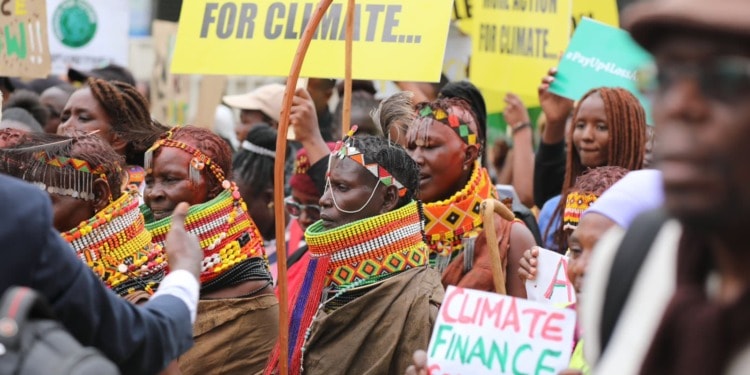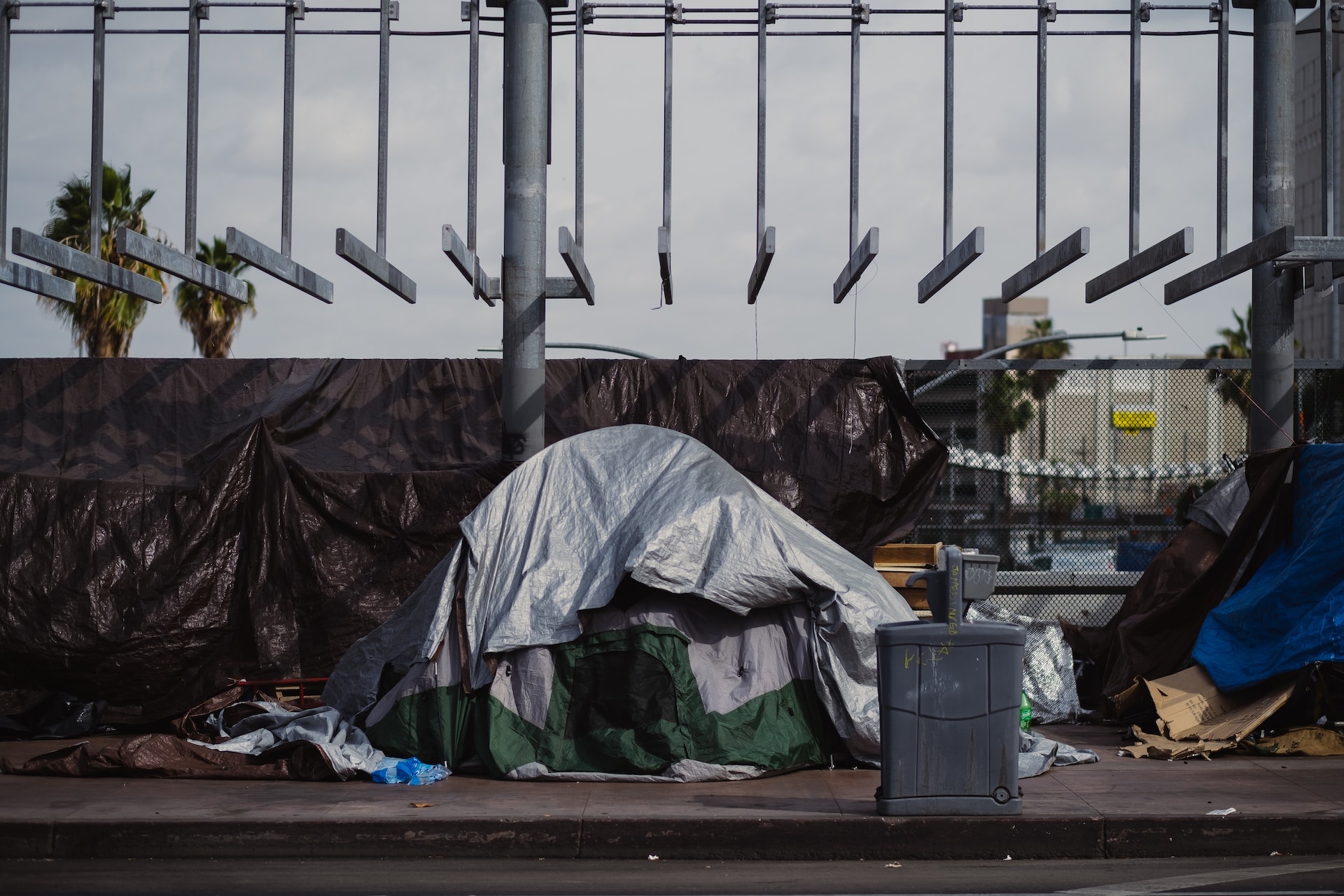Hosting the Africa Climate Summit is a crucial moment for the continent. However, there is still uncertainty around fund allocation and priorities.
Visions of Change From the Leaders of Africa
The Africa climate summit’s main objective, as stated by the host, is not to perpetuate a victim mentality. Instead, it aims to change the perspective so stakeholders recognise that African countries with access to abundant resources are essential contributors to the green economy.
Despite being the world’s fastest-growing continent, it is also the most vulnerable to the adverse effects of global warming. In fact, as per John Kerry, the US climate envoy, 85% of the 20 nations most affected by the climate crisis are in Africa.
Kenya’s President William Ruto, the summit host, envisions a new era of international solidarity and multilateral governance to guide the world in climate action.
Most notably, he has called for global debt relief to aid indebted African nations in addressing climate change. Alongside this, he has proposed extending debt repayments and introducing a decade-long grace period to redirect funds to climate initiatives. He also emphasised the importance of including China in these discussions, as it currently holds debt-trap diplomacy with the continent. 49 African countries owe 12% of their debt burden to China and Chinese lenders.
Warning to Africa and others Beware of the hidden strings attached to China's so-called "aid." Their #DebtTrapDiplomacy strategy is a web that entangles nations in unsustainable debt and threatens their sovereignty. pic.twitter.com/LFDioaFMR2
— Edham mamet (@MametEdham) August 31, 2023
Another African president to have fearlessly spoken up at the summit is Sierra Leonne president Julius Maada Bio. His focus is on innovative green growth and climate finance solutions that address the country’s adaptation and mitigation challenges.
This is no surprise, considering Sierra Leone regularly faces significant climate challenges. Sierra Leone is particularly prone to serious environmental hazards such as drought, flooding, coastal erosion, and landslides, each exacerbated by ongoing climate change.
To meet these challenges head-on, Maada Bio has been actively pursuing climate action initiatives in line with Kenya’s Climate Change Action Plan. His government aims to replicate Kenya’s successful climate action model, particularly focusing on renewable energy, afforestation, and sustainable agriculture. Adopting the plan may open doors for the country to fairly compete in the global markets and generate new jobs for the expanding workforce.
Financial Commitments from the West
Considering the African presidents’ visions, let us dive into what has already come from the three-day summit.
Large economies appear to be throwing money at the problem. For its part, the US pledged $30 million to help the continent deal with climate-induced food insecurity. About one-third of these funds will go towards finding technical solutions to food scarcity and storage.
Meanwhile, the EU has pledged €1 billion ($1.08 billion) to make emerging African markets more attractive for foreign energy investors. Germany has also announced plans for €450 million ($486 million) of climate finance pledges to Africa.
But perhaps the biggest news came from investors in the oil-rich United Arab Emirates, who have announced a deal to buy a whopping $450 million worth of carbon credits. These will be from the Africa Carbon Markets Initiative, formed last year to expand the continent’s involvement in the voluntary carbon trade market.
A Not So United Front
Still, many people aren’t on board with this approach. Around 500 people marched in Nairobi on Monday to protest the carbon offset scheme. They claim that carbon credits have been, and will continue to be, used by large corporations to further their own bottom lines while doing little to minimise carbon emissions.
@ the africa climate summit this week we hear: UAE commits to buying $450 mln of carbon credits: We hear more and more commitments towards carbon credits! The carbon trading allows polluters to keep polluting. Kick polluters out of climate governance! pic.twitter.com/2I6oWlMxLI
— juliet nangamba (@mitchnan) September 4, 2023
They have also questioned some of these investments’ lack of transparency and questionable quality.
The V20 Group, comprising finance ministers from vulnerable economies, have expressed their apprehensions regarding the Africa Climate Summit. While they endorse the summit as a catalyst for transformative change, they emphasise the need for immediate action to support vulnerable communities.
RELATED ARTICLES: Turning Waste Into Wealth, a Collaboration for Circular Economy | Can a Bigger BRICS End Western Dominance?
Voices of Women at the Forefront
Several women and women’s groups have played pivotal roles in advocating for gender-inclusive climate financing at the summit. And understandably so, considering that women in frontline communities tend to bear the brunt of climate change but are often left out in decision-making processes to address the climate crisis.
Amongst the most vocal groups has been the African Women Leaders network. This network comprises influential women leaders from various African countries actively engaged in climate advocacy. They are collectively pushing for gender equality in climate financing and decision-making processes.
Alongside them has been the Africa Women and Gender Constituency. Ahead of the summit, they published their full declaration, which called on African governments to take serious measures to address the impact of climate change on women and girls. Unlike other groups, they have been very vocal about stepping back from the colonial era mindset that has kept Africa in a decades-long debt trap.
“We, African women and girls, the custodians of the land, nurturers of life, keepers of our communities, and guardians of knowledge, have gathered here today to assert our collective and resolute commitment to safeguarding our continent, our countries, our communities, and our planet from the devastating impacts of the climate crisis. We stand here to demonstrate our leadership and claim our rightful place in decision-making processes.” Africa Women and Gender Constituency Declaration
More than anything, the women demand their respective governments and the Western world to prioritise gender-sensitive climate financing. With funding already being proposed by Western nations, there is hope that some will be used to fund mechanisms that address climate resilience and tackle gender-based vulnerabilities. These include access to resources, education, and a decision-making role in climate adaptation and mitigation efforts.
Indigenous Groups at the Summit
Several indigenous groups have also taken to the summit; some have representatives there to bring their unique perspectives to the forefront.
Among them, the Maasai people from Kenya have highlighted the impact of climate change on their pastoralist way of life. They emphasise the need for sustainable land management and climate-resilient agriculture practices that respect their traditional knowledge. The current climate situation has also shown its effects on their youth communities. With the prolonged droughts, many are being forced into desperate situations, with young girls, as young as 12, being given away as brides in exchange for cattle.
Additionally, the San people from Southern Africa have shared their experiences of climate-induced water scarcity. They advocate for water resource management strategies considering their cultural connection to the land. Whilst these bushmen have long had a history of moving around seasonally to find water, climate change has made it much harder to sustain their way of life.
Youth Demands and Expectations
Unsurprisingly, Africa’s youth delegation has also created a voice for themselves at the summit. Like others speaking up, their drive is a passion for climate action and their dedication to creating a sustainable future. As expected, many have mobilised social media to amplify their voices and engage with the global audience.
The Africa we want!
Today, we joined forces and marched on the streets of Nairobi as the African Climate Summit commences, to signify the real summit and what demands we would like to be met.
It is our future on the line, and we must at least have a say in it.#PeoplesACS23 pic.twitter.com/qQLo8duMPX
— Youth Pawa (@YouthPawaOrg) September 4, 2023
One notable example is prominent youth leader Ifeoluwa Olatayo, a climate advocate from Nigeria who has actively raised awareness about climate change’s impact on vulnerable communities. She has called for increased youth participation in climate decision-making and greater investment in youth-led initiatives.
The Pan-African Youth Climate Justice Alliance (PAYCJA) has also mobilised young activists across the continent. They have raised concerns about the lack of youth representation in decision-making processes. In Addition, they have called out the insufficient allocation of climate finance to support youth-led initiatives.
A Common Goal for an Equitable Future
What is certain about the Africa Climate Summit is that everybody is pushing for bold and immediate actions.
With COP28 on the horizon, we can only hope the world continues to watch and see what Africa offers. The summit has already showcased Africa’s potential to influence climate action, setting the stage for future progress. Now, the world must listen attentively and take action accordingly.
Editor’s Note: The opinions expressed here by the authors are their own, not those of Impakter.com. — In the Featured Photo: Protesters at the Africa Climate Summit. Featured Photo Credit: Youth Pawa.








